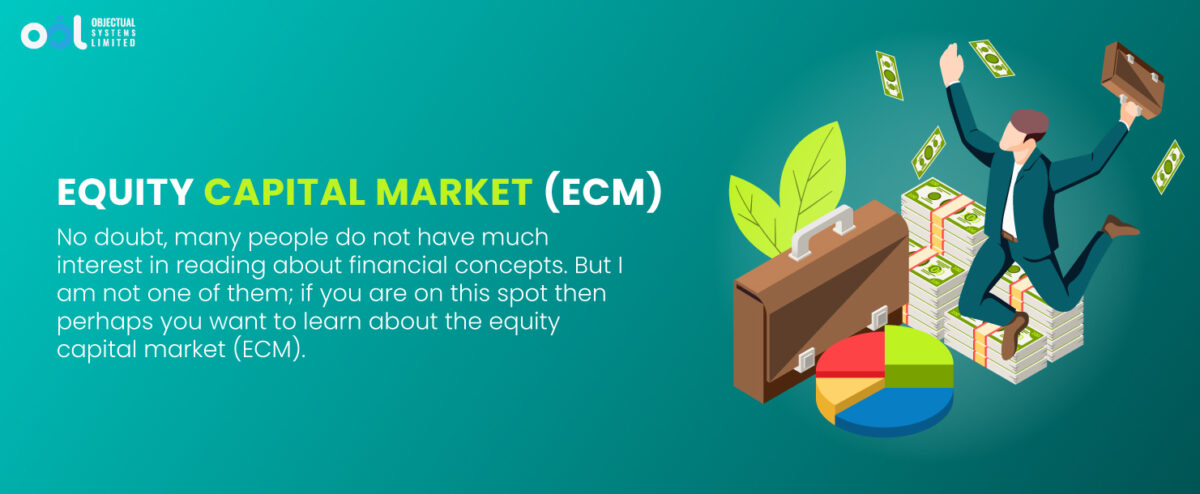No doubt, many people do not have much interest in reading about financial concepts. But I am not one of them; if you are on this spot then perhaps you want to learn about the equity capital market (ECM). You are at the right spot to have rich information in just 3 minutes of reading time of this blog.
The equity capital market (ECM) is associated with the area where financial institutions allow companies to enhance equity capital. The stocks are traded in this market; it is based on two main markets: the primary market for private placement, warrants, and initial public offerings (IPOs). Whereas the secondary market is considered for the trading of existing shares, options, futures, and so many other securities.
Understanding Equity Capital Markets (ECMs)
The equity capital market (ECM) is wider than the stock market because it offers a broader range of financial activities and instruments. Such activities include the marketing, distribution, and allocation of IPOs, derivative trading, issues, book building, and private placements. The main contributors in ECM are retail investors, angel inventors, venture capitalists, investment banks, and broker-dealers.
With the combination of the bond market, ECM mediums money grants by savers and depository institutions to investors. Being one of the main parts of the capital market, ECM is considered as the efficient allocation of resources within a market economy. Let’s discuss the two main types of equity capital market (ECM):
Primary Equity Market
The companies issue new securities into two parts: primary public market and private placement in the primary equity market. In the primary market, the listed companies are allowed to issue the new equity via seasoned issues and companies can go public through IPOs. Whereas in the private placement market, companies do raise private equity through unquoted shares that are considered to sell directly to inventors.
Secondary Equity Market
In the secondary market, no creation of capital is done. It is like the stock market, where the trade of existing shares happens. It consists of an over-the-counter market (where the dealers work in the network without acting as an intermediary) and stock exchanges.
Pros and cons of Raising Capital in Equity Markets
Increasing capital through the equity market offers plenty of perks for companies.
The main advantage is the lower debt to equity ratio as organizations are not required to access debt markets with high-interest rates to finance future growth. As compared to the debt market, you will find the equity markets more flexible and have a broader variety of financing options for growth. On some occasions, equity markets help company founders and entrepreneurs to bring oversight and experience from senior colleagues, especially in a private placement. It allows companies to expand their business with new products in new markets.
On the other hand, there are some problems with increasing capital in equity markets, as the process of public offering can be time-consuming and expensive. There are different parties involved in the process that can result in the multiplication of time and costs needed to bring the organization to market.

